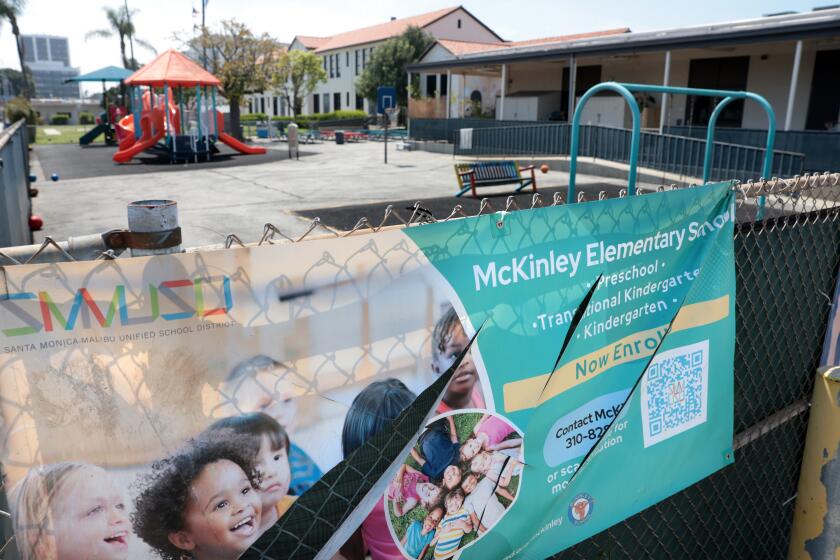Kids, Here’s a Fine Mess They’ve Gotten Us Into
Dear President-to-Be,
I’m looking at the junkiest room I’ve ever seen. It is a classroom in an American public school; it is public education in America today. A child did not make the room junky; generations of litterers -- legislators, school board members, superintendents, principals, taxpayers, teachers and presidents did.
Given the mess, it is a wonder that our children are able to do even as well as they do. We must be grateful that there always have been talented and determined teachers who find their way through the maze of rules and special interests and do what they became teachers to do: help their students shine.
Our neighborhood schools are cluttered and crumbling. Of course, I’m assuming that anyone applying to be president probably never went to a poor and neglected public school where books have missing pages, walls have peeling paint and children have nothing to write with. Wealthy people comfort themselves that money is not the issue. But nothing dear to America was ever maintained without it. We need money to secure great teachers, money to update teaching methods, money for technology and supplies, and money for time.
Time is a precious commodity and teachers need it to plan lessons and meet with students, parents and administrators.
When the junk is cleaned out of that junky room, its structure is sound: Public education is a good foundation on which to build a better life for each of us. And if we want to prove to these children who never made the mess in the first place that education is worth the trouble, our schools have to inspire them so they can do what they ought to do.
A young teacher, returning to college to hone her skills, asks herself why she wants to teach children who do not have a safe environment to learn in and who lack resources and support from administrators and family. Besides her intrinsic love for teaching, we need to give her a reason to stay.
We must make firm commitments to educators who can show us the way, and learn from the many clear examples of their success. The media constantly focus our attention on the very worst schools when we should really have before us, like shining examples, these school success stories. Why do we accept failure as an example when we can demand that the successes be made visible?
School leaders have to be seen to be heard and to be supported. And we ought to pay them livable salaries, at least enough to afford the chalk and crayons and countless other supplies they buy out of their own pockets. I invite you to look into this room. You can say to our nation, “We must begin -- we cannot wait for someone else to clear out the mess.”



